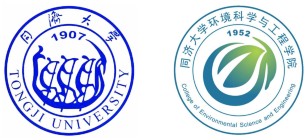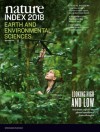
Tongji University
The College of Environmental Science and Engineering (CESE) at Tongji University is one of the earliest Chinese institutions for environmental higher education and research. Long before sustainability became a buzzword, CESE was dedicated to the search for innovative solutions for environmental protection and sustainable development. With renowned strength in environmental research and education, the college has established itself as China’s leading institution in the field.
Located in Shanghai, CESE has 95 faculty and 30 staff members, working in four departments: Environmental Engineering, Municipal Engineering (Water Supply and Sewage), Environmental Science, and Environmental Management. Research fields include urban water supply and sewage, pollution control engineering, water resources management, environmental chemistry and biology, environmental planning and management, environmental policy in polar regions, and sustainable development. In addition to 1,576 full-time Chinese students, CESE also provides English programmes to 70 international master’s and PhD students.

In 2002, CESE co-established the UNEP-Tongji Institute of Environment for Sustainable Development (IESD) along with the United Nations Environment Programme (UNEP). CESE research platforms also include the State Key Laboratory of Pollution Control and Resource Reuse, the State Engineering Research Center for Urban Pollution Control, the Key Laboratory of Yangtze River Environment, and the International Joint Research Center on Sustainable Urban Water Systems.
Through academia-industry cooperation and technology transfers, CESE has helped form Shanghai’s environmental protection framework, enhancing their capacity, particularly in municipal sewage treatment, sludge disposal, reuse of organic waste and solid waste management. It set up China’s first waste treatment project using thermal hydrolysis and high-solid anaerobic digestion, which can treat 500 tons of sludge a day from wastewater treatment plant. The sludge and food waste anaerobic co-digestion project in Zhenjiang was another success. Collaboration with the community and industry has led to a complete chain connecting research with technology transfer and product design, with successful business and social results.
CESE has been working on pollution control and drinking water quality management for key watersheds in China for a long time, especially in Tai Lake and Chao Lake. It has applied its integrated technologies for comprehensive rehabilitation and optimization of sewage systems, storm water and urban runoff control, and river remediation, having significantly improved the water quality in Hefei and Chaohu. The peroxidation-biological pretreatment of Tai Lake, as well as biological-ecological remediation and O3-activcated carbon-ultrafiltration membrane technologies have helped address the problem of excessive chemical nutrients, ensuring safe drinking water.
CESE has reached out globally through collaboration with UNEP. It has supported safe water supply projects in Nairobi, built a constructed wetland for wastewater treatment in Kisumu, and trained more than 100 African technicians. A key member of the Global Universities Partnership on Environment and Sustainability, Tongji hosts an annual International Student Conference on Environment and Sustainability, attracting more than 300 participants from 30-plus countries annually.
The latest evaluation by China’s Ministry of Education ranked CESE as one of the three A+ institutions in environmental science and engineering and in 2017 it was selected into the national ‘Double First-Class’ project.



 Nature Index 2018 Earth and environmental sciences
Nature Index 2018 Earth and environmental sciences